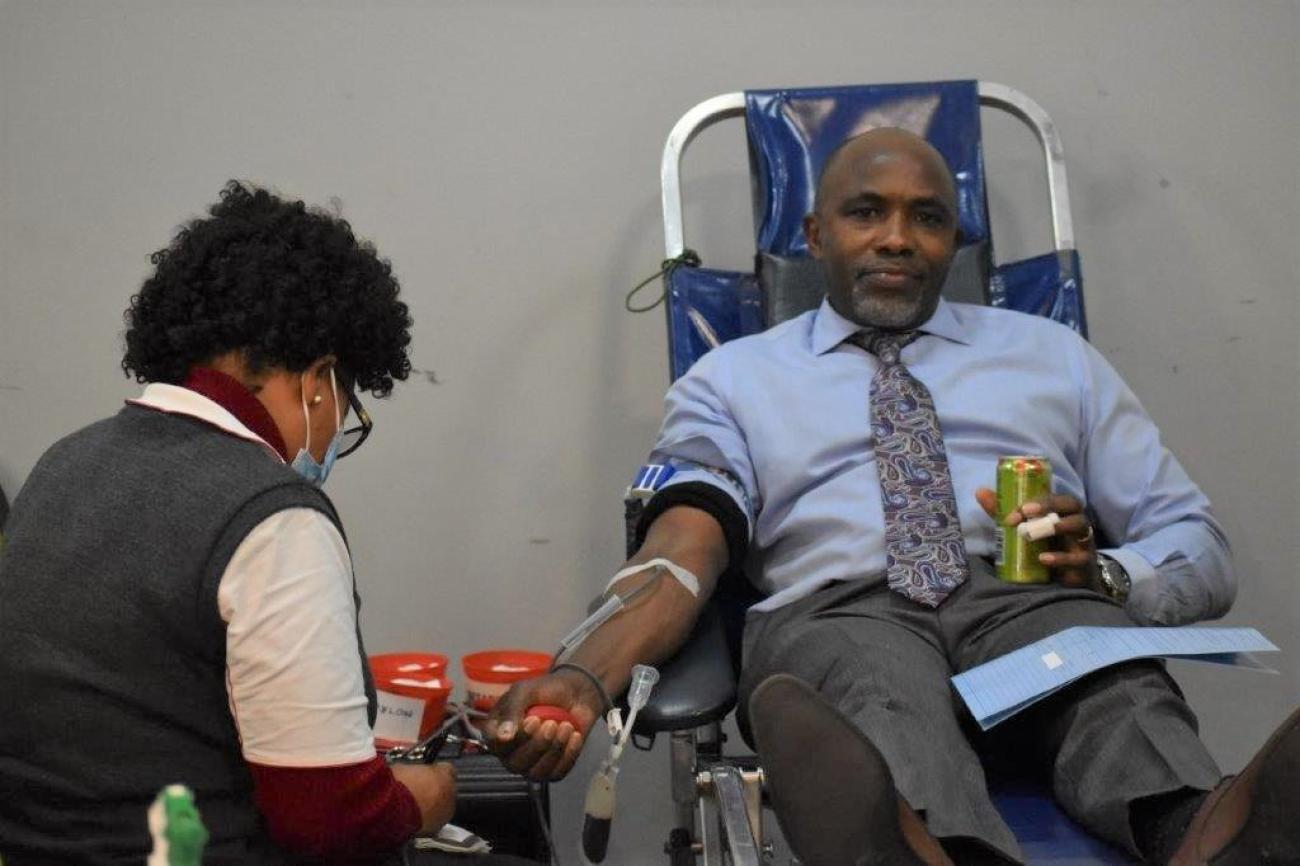United Nations Eswatini employees are making the effort to act in solidarity to save lives by donating blood.
On the 16th June 2022, the UN Staff Federation, with support from WHO and the National Blood Transfusion Services under the Ministry of Health, organized a commemoration of World Blood Donor Day to raise awareness on the importance of donating blood as an act of solidarity to save lives, and the opportunity was availed for UN staff to donate blood.
UN Resident Coordinator, Mr. George Wachira, who was the official guest, did not miss the opportunity to also donate blood. Mr Wachira noted that donating blood was an act of selflessness and a gift of life to someone. “I say it is a literal gift of life because, indeed, when we give blood, we become the reason for someone’s existence,” he said. “Furthermore, this gift is often to someone that we do not know, which makes donating blood a special act of selflessness.”
Only 10 percent of the blood collected from volunteers in Eswatini is from the adult population. 90 percent comes from young people in schools. “We want to change this and increase the donation from adults who are not very much aware of the need for blood and the contributions they can make to save lives by a simple act of solidarity,” said Dr. Mekdim Ayana, WHO Health Systems Strengthening officer, who represented WHO Representative, Dr. Cornelia Atsyor during the commemoration.
This year’s theme, Donating blood is an act of solidarity. Join the effort and save lives, seeks to highlight and celebrate the critical role of voluntary blood donations in saving lives, and enhancing community solidarity and social cohesion.
“Experts tell us that, by donating just one unit of blood, one person can save the lives of up to three patients,” said the Resident Coordinator. “Forget Superman, Spiderman, Batman and all those imaginary heroes: Each one of us can be and is a hero each time we donate blood.”
Mr. Wachira noted that there is a lot of demand for blood, especially in developing countries, due to blood loss from accidents. He encouraged UN staff to also play a role in reducing road accidents. Eswatini, through the Ministry of Public Works and Transport, has embraced the Decade of Action for Road Safety 2021-2030, which seeks to raise awareness on the importance of obeying speed limits and being careful on roads. “I urge each one of us to remind ourselves, our loved ones and friends, on the importance of road safety, whether as drivers, passengers or pedestrians. We all have a role in reducing loss of lives and blood in accidents,” said Mr. Wachira.
WHO has been supporting the National Blood Transfusion Services in building their capacity to collect more blood, to save blood for a longer period, how to use excess blood in a more efficient way. They are also being supported to establish the hemovigilance system which is a set of surveillance procedures covering whole transfusion chain from the collection of blood and its components to the follow up of its recipients, intended to collect and access information on unexpected or undesirable effects resulting from the therapeutic use of labile blood products.




